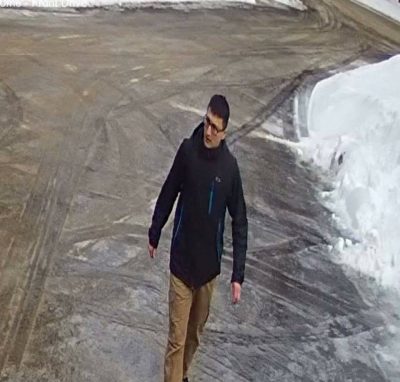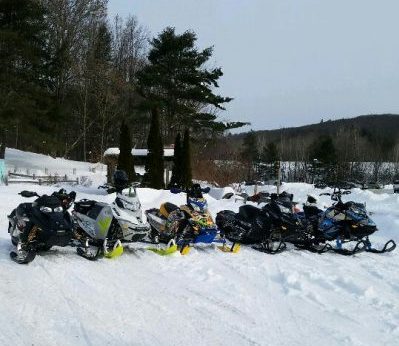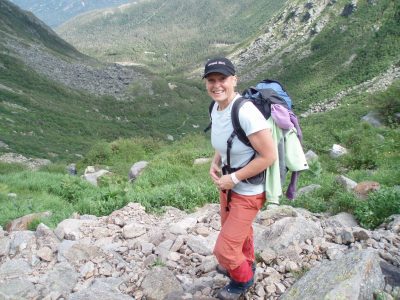 Bartlett Police are looking to identify this man suspected of trespassing on a property in the Rolling Ridge Road area on Sunday ~ Photo courtesy of Barlett Police
Bartlett Police are looking to identify this man suspected of trespassing on a property in the Rolling Ridge Road area on Sunday ~ Photo courtesy of Barlett Police
BARTLETT, NH – The Bartlett Police are looking for the public’s help in identifying a trespassing suspect. On Monday Police released an image on their Facebook page of an individual believed to be trespassing in the area of Rolling Ridge Road in Bartlett.
Bartlett Police Chief Christopher Keaton said that the homeowner’s surveillance system caught an image of a man on the property sometime yesterday (Sunday) morning.
Chief Keaton said that the homeowner’s did not recognize the man and that they are looking for information as to why the individual was on the property.
The suspect is a white male in his late 20’s early 30’s with dark hair and glasses. In surveillance footage the suspect was last seen wearing a navy blue winter jacket.
Those who may have any information pertaining to the case is asked to contact the Bartlett police at 356-5868.

 In this 1985 photo, high school teacher Christa McAuliffe rides with her daughter Caroline during a parade down Main Street in Concord, N.H. McAuliffe was one of seven crew members killed in the Space Shuttle Challenger explosion on Jan. 28, 1986. (AP Photo/Jim Cole)
In this 1985 photo, high school teacher Christa McAuliffe rides with her daughter Caroline during a parade down Main Street in Concord, N.H. McAuliffe was one of seven crew members killed in the Space Shuttle Challenger explosion on Jan. 28, 1986. (AP Photo/Jim Cole) Rescue crews from four local communities responded to help a woman injured in a snowmobile rollover on Mt. Crescent. ~ Photo courtesy of New Hampshire Fish and Game
Rescue crews from four local communities responded to help a woman injured in a snowmobile rollover on Mt. Crescent. ~ Photo courtesy of New Hampshire Fish and Game Snowmobile riders can ride in Vermont, New Hampshire, and Maine this weekend without having to register in all three states ~ Photo Courtesy of Craig Oesch
Snowmobile riders can ride in Vermont, New Hampshire, and Maine this weekend without having to register in all three states ~ Photo Courtesy of Craig Oesch Susan Beane has been named as the Interim Executive Director of The Denmark Arts Center.
Susan Beane has been named as the Interim Executive Director of The Denmark Arts Center. Snow sports legendary filmmaker Warren Miller dies at age 93 ~ Photo courtesy of The Seattle Times
Snow sports legendary filmmaker Warren Miller dies at age 93 ~ Photo courtesy of The Seattle Times
